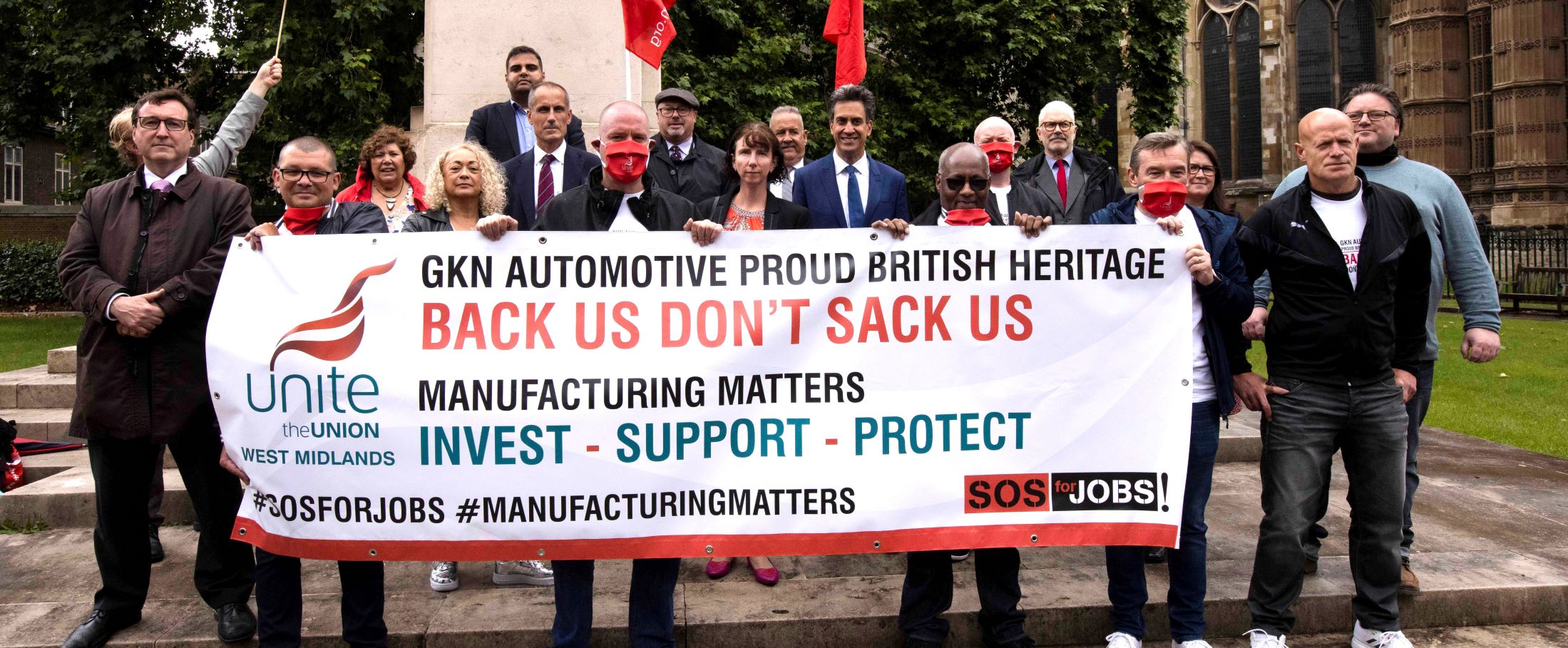Stop Brexit pain
The consequences of a “hard” Brexit have been laid bare in a new report, which shows that manufacturing, agriculture, energy and construction are amongst the sectors which would be hardest hit.
The report from the cross party Demos think tank also found that Wales, Northern Ireland, London and the north east of England are the regions most vulnerable to a hard Brexit.
Demos said the findings “have thrown into focus the critical need for stakeholders with expertise from different sectors of the economy to be involved in the negotiation process”, if a Brexit that works for the whole of the UK is to be achieved.
The Making the Most of Brexit report was based on consultations with leaders from business, academia, civil society and national and local government.
The industries facing the highest tariffs if the UK leaves, or retains only partial access to, the customs union are agriculture, forestry and fishing, mining and quarrying and manufacturing, the report found.
British producers of dairy, confectionary, tobacco and alcohol will have the highest duties to pay for exporting to the EU, with dairy products alone being slapped with massive 33.5 per cent duties.
As well as being vulnerable to tariffs, manufacturers – who account for 45 per cent of the UK’s EU exports – are also at risk from reduced EU immigration due to the fact that around 10 per cent of the sector’s workforce comes from Europe.
Labour and skills warning
Demos warned that it wasn’t just the loss of low skilled workers that the UK needed to brace itself for.
“Britain also needs to prepare for a significant shortage of labour in high value added manufacturing and engineering. This research highlights the need to use Brexit as an opportunity to fundamentally rethink and â€level up’ the economy towards high skills and high productivity, looking beyond immigration policy, to encouraging investment in education and adult skills,” the think tank said.
The report found that agriculture and energy are particularly at risk from a hard Brexit, due to more than two thirds of their exports going to the EU. Construction, transportation and financial services “also face significant risks, given their reliance on the EU as an export market and supply of labour.”
Demos said that Wales would suffer the most of all the UK’s regions from a hard Brexit, as more than 60 per cent of its exports currently go to the EU. Wales also benefits far more than any other British region from EU structural funds, with 1 per cent of its annual gross added value coming from Europe.
Other regions facing significant Brexit-related risks such as export tariffs, a drop in EU funding and skills shortages include Northern Ireland, London and the north east of England, the research showed.
Demos called on the government to form its Brexit approach through close consultation with industry, devolved governments, the non-profit sector and the public.
The think tank said government should recognise the substantial expertise that many groups outside of Whitehall can bring to the negotiation process and for ensuring a smooth transition and prosperous future for Britain.
Demos chief executive, Claudia Wood, said, “Yes, Brexit poses risks for the UK economy, but so too does it present unique opportunities – not least to have a national conversation about what we want our economy and society to look like over the longer term.
“Negotiators have to be alert to this once in a lifetime opportunity for renewal and engage the third sector, businesses, local and devolved government and the public accordingly.”
Unite working hard for members
Unite general secretary Len McCluskey said the union is working hard to ensure that the voice of ordinary people is not ignored during the two-year Brexit talks.
He said, “Decisions made in the coming months will direct the course of our nations and people for many years to come, which is why Unite is determined that the voice of working people will be heard.
“People may have voted to be out of Europe, they did not vote to be poorer or out of work. That is why we are urging members to sound the alarm, or even report on positive developments, when Brexit impacts on their workplace and their communities.
“Top of our list is that the UK must retain access to the single market and membership of the customs union. It is abundantly clear that the jobs, core industries and prosperity of all four nations of the UK rely heavily on this access.”
To contact Unite’s dedicated Brexit team click here.
 Like
Like Follow
Follow
